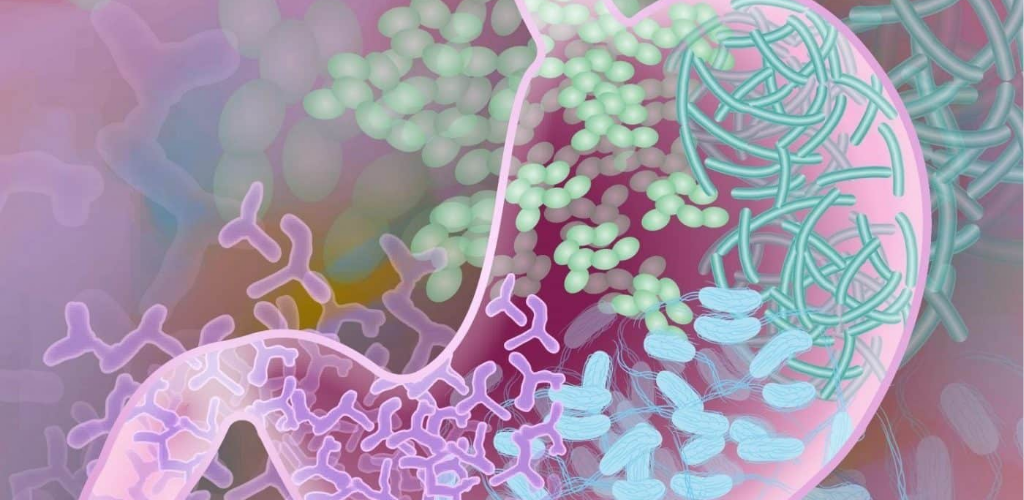The Human Gut Microbiome in Health and Disease
The human gut microbiota, consisting of a diverse community of microorganisms, plays a crucial role in maintaining health. In a healthy state, the gut microbiota have numerous positive functions, including energy recovery from the metabolism of nondigestible components of foods, protection of the host from pathogenic invasion, and modulation of the immune system[1]. These microorganisms, mainly composed of bacteria, stimulate the immune system, maintain intestinal epithelial integrity, help in the metabolism and synthesis of essential nutrients, and resist pathogens[3]. The gut microbiota also contribute to the reduction of the risk of chronic conditions such as colorectal cancer and obesity[3]. Therefore, understanding the roles of the gut microbiota and their interactions with the human body is essential for improving human health.
The Microbiome and Its Broad Role in Health
The microbiome, which consists of microbes that are both helpful and potentially harmful, is a dynamic environment where the relative abundance of species may fluctuate based on various factors such as diet, medication, and environmental exposures[2]. In a healthy person, these microorganisms coexist peacefully and play key roles in promoting health. They stimulate the immune system, break down potentially toxic food compounds, and synthesize certain essential nutrients[2]. However, disruptions in the balance of the microbiome, known as dysbiosis, can lead to an increased susceptibility to disease. Factors such as the use of antibiotics or other bacteria-destroying medications can contribute to dysbiosis, highlighting the importance of maintaining a healthy microbiome for overall well-being.
Gut Microbiota and Disease
Research has shown that the gut microbiota is closely involved in nutrient extraction, metabolism, and immunity, and its manipulation can be key for the treatment of various diseases[4]. Imbalances in the gut microbiota have been linked to conditions such as inflammatory bowel disease (IBD), obesity, type 2 diabetes, and atopy[1]. Therefore, understanding the composition and functions of the gut microbiota is essential for developing interventions to prevent and treat these conditions. Dietary interventions have been identified as a less aggressive, low-risk, and effective approach to modulate the gut microbiota and improve health outcomes[3].
The Role of the Gut Microbiota in Nutrition and Health
The gut microbiota provides essential capacities for the fermentation of non-digestible substrates like dietary fibers and endogenous intestinal[5]. It influences various areas of human health, from innate immunity to appetite and energy metabolism[5]. Targeting the gut microbiome with probiotics or dietary fiber has been shown to benefit human health and could potentially reduce obesity[5]. However, it’s important to consider the potential adverse effects of drugs, food ingredients, antibiotics, and pesticides on the gut microbiota, highlighting the need for a holistic approach to maintaining a healthy microbiome.
In conclusion, the gut microbiota plays a pivotal role in maintaining human health. From promoting immune function to aiding in the metabolism and synthesis of essential nutrients, the gut microbiota’s positive functions are diverse and essential. Understanding the factors that influence the composition and balance of the microbiota, as well as the potential implications of dysbiosis, is crucial for developing strategies to support a healthy microbiome and prevent associated diseases.
Citations:
[1] https://www.ncbi.nlm.nih.gov/pmc/articles/PMC4566439/
[2] https://www.hsph.harvard.edu/nutritionsource/microbiome/
[3] https://www.ncbi.nlm.nih.gov/pmc/articles/PMC7678755/
[4] https://www.nature.com/articles/s41392-022-00974-4




